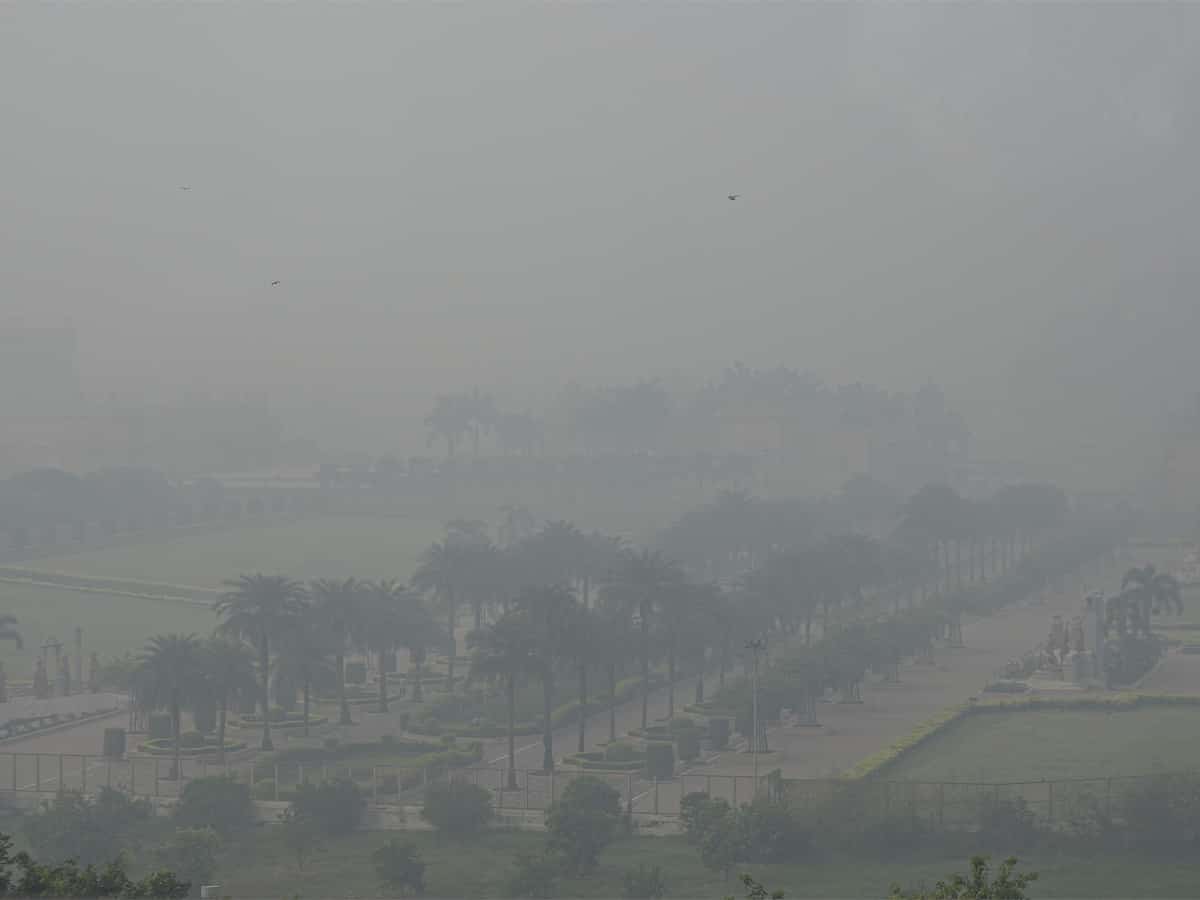
[ad_1]
New Delhi: Once a luxury product, air purifiers have become an increasing necessity due to rising sales amid rising pollution levels in Delhi that are now just one step below the ‘Severe Plus’ category.
According to Central Pollution Control Board data, Delhi’s overall Air Quality Index (AQI) stood at 426 at 9.30 am on Friday. An AQI above 400 is considered ‘severe’ and can affect healthy individuals and be severely affected by existing illnesses. On Thursday, the 24-hour average AQI stood at 450 at 4 pm, just one step below the ‘Severe Plus’ category.
Demand for air purifiers has increased in the national capital, especially after Diwali, where crackers are widely burst despite the ban.
“Air quality in India is deteriorating due to industrial expansion in cities, population density, improper waste management, crop burning, increased use of automobiles and several natural factors. There is evidence that air pollution, both outdoor and indoor, is increasing and behind higher morbidity and mortality,” said Karthik Singhal, founder of O2 Cure and managing director of Zeco Aircon Ltd.
The increase in air purifier sales reflects the worsening air quality, he said, adding that buyers in big cities like Delhi, Gurgaon, Noida have become more conscious and responsible about indoor purification.
“This has led to growth in the air purifier sector where we have seen a huge jump in sales in the last few weeks,” added Singhal.
A representative of Mehra Electronics in Khan Market agrees.
“This is the need of the hour. This is the time of peak pollution and sales have increased,” he said.
Market experts said that sales of air purifiers were higher in South Delhi because of the purchasing power and better awareness of people living there.
Manish Seth, secretary of the Daryaganj Traders Association and owner of an electronics shop, said the device has now become a necessity and even doctors are advising patients to use it.
“Companies have also realized this and reduced prices. Purifiers that used to cost Rs 15,000 to Rs 20,000 are now being sold for Rs 7,000 to Rs 8,000. Some shops in South Delhi have higher sales because people have more awareness and purchasing power. The product is also advancing itself in the online space,” he said.
Mohit Singh, sales executive at Atmo Pure in Jangpura, said air purifiers are priced between Rs 7,000 and Rs 60,000 in their stores, depending on the technology, filter used and coverage area.
“We have seen a sharp increase in demand for air purifiers during this period over the past few years. It is literally the cost of your breath, a health investment as important as your regular health insurance,” he added.
Singh said a large number of users have bought purifiers for their children and the elderly and have invested in equipment with low maintenance costs.
Nitin Sharma, Senior Executive, Global Gadgets Store, Khan Market, said, “Sales increased after Diwali due to poor air quality. Sales will increase in the coming days.”
The store sold 30 air purifier units on Thursday.
However, buying an air purifier is not enough as it needs maintenance with regular cleaning of the filters to function properly.
“People forget to clean the filter and it affects its lifespan. You should clean the filters every week to ensure the longevity of the filter and the machine,” says Parth Ahuja, purification expert at Dyson.
Many doctors are advising patients, especially the vulnerable such as the elderly, children and people with respiratory problems, to use air filters at home and avoid going outside in the morning and evening.
Dr Rahul Sharma, Additional Director (Pulmonology), Fortis Hospital, Noida, said, “HEPA (high efficiency particulate matter) filters work well and we recommend them for patients, especially those who are housebound.
“The purifier works in a limited cubic meter space. When buying a purifier you should check how much air it can purify according to the capacity of your home. Another important point is that there are HEPA filters and HEPA-like filters, which are not as effective as HEPA filters and are also very expensive.”
[ad_2]
Source link
